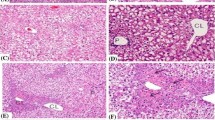Summary
The pharmacokinetics of α-difluoromethylornithine (DFMO), an irreversible inhibitor of polyamine biosynthesis, were investigated in BALB/c (nude) mice after i.p. injection and after oral administration of radiolabeled drug. After i.p. injection the compound was rapidly cleared from the serum (t1/2α=14 min; t1/2β=2.1 h) and from tissue such as muscle, liver and kidney (t1/2α=30–60 min; t1/2β=2.1 h). DFMO concentrations were proportional to the administered dose (10–2000 mg/kg) in both serum and tissues.
Oral administration of DFMO was carried out by dissolving the compound in drinking water at a concentration of 20 g/l. Studies on the distribution showed that DFMO did not accumulate preferentially in any particular tissue. An extremely wide variation in the dose actually achieved in different animals was observed; this ranged from 350 to 2800 mg/kg for a 14-h treatment period. A significant correlation (r=0.83–0.92) between the dose of DFMO, calculated from the consumption of drinking water for each individual animal, and the DFMO concentrations in serum, muscle, spleen, liver and kidney was found. Similarly, it was shown that oral administration of DFMO during the daytime resulted in 10- to 15-fold lower levels than administration during the night. After discontinuation of treatment DFMO levels in serum and tissues decreased by 50% in approximately 6 h.
From these results it is concluded that the optimal treatment schedule of mice with DFMO (or other drugs with similar pharmacodynamic properties) consists in a combination of oral administration via the drinking water and additional i.p. injection (during the daytime). Furthermore, the drug intake of the individual animals should be monitored to check whether the experimental requirements are actually fulfilled.
Similar content being viewed by others
Abbreviations
- DFMO:
-
α-difluoromethylornithine
- ODC:
-
ornithine decarboxylase
References
Abeloff MD, Slavik M, Luk GD, Griffin CA, Herman J, Blanc O, Sjoerdsma A, Baylin SB (1984) Phase I trial and pharmacokinetic studies of alpha-difluoromethylornithine, an inhibitor of polyamine biosynthesis. J Clin Oncol 2:124
Haegele KD, Alken RG, Grove J, Schechter PJ, Koch-Weser J (1981) Kinetics of alpha-difluoromethylornithine: an irreversible inhibitor of ornithine decarboxylase. Clin Pharmacol Ther 30:210
Jänne J, Pösö H, Raina A (1978) Polyamines in rapid growth and cancer. Biochim Biophys Acta 473:241
Jänne J, Hölttä E, Kallio A, Käpyaho K (1984) Role of polyamines and their antimetabolites in clinical medicine. Spec Top Endocrinol Metab 5:227
Kurth KH, Van Dongen JW, Romijn JC, Lieber MML, Schroeder FH (1984) Assay evaluability of drug testing systems determined with human renal carcinoma cell lines. World J Urol 2:146
Metcalf R, Bey P, Danzin C, Jung MJ, Casara P, Vevert JP (1978) Catalytic irreversible inhibition of mammalian ornithine decarboxylase (EC 41117) by substrate and product analogues. J Am Chem Soc 100:2551
Pegg AE, McCann PP (1982) Polyamine metabolism and function. Am J Physiol 243: C212
Romijn JC, Van Steenbrugge GJ, Schröder FH (1984) Effects of polyamine antimetabolites on the growth rate of human prostatic tumors transplantable into nude mice. In: Sordat B (ed) Proceedings of the Fourth International Workshop on immune-deficient animals. Karger, Basel, p 370
Sunkara PS, Prakash NJ (1984) Inhibitors of polyamine biosynthesis as antitumor and antimetastatic agents. In: Sunkara PS (ed) Novel approaches to cancer chemotherapy. Academic, Orlando, p 93
Author information
Authors and Affiliations
Additional information
This study was supported by grant no. IKR 84.10 from the Netherlands Cancer Foundation (KWF)
Rights and permissions
About this article
Cite this article
Romijn, J.C., Verkoelen, C.F. & Splinter, T.A.W. Problems of pharmacokinetic studies on alpha-difluoromethylornithine in mice. Cancer Chemother. Pharmacol. 19, 30–34 (1987). https://doi.org/10.1007/BF00296251
Received:
Accepted:
Issue Date:
DOI: https://doi.org/10.1007/BF00296251




